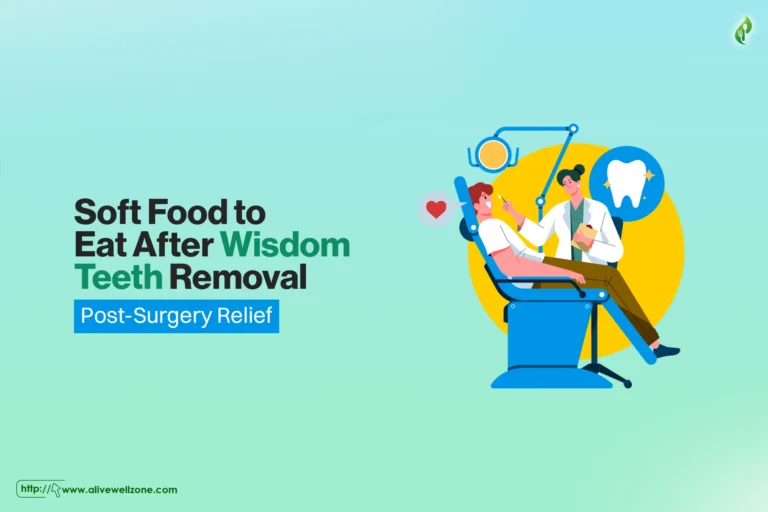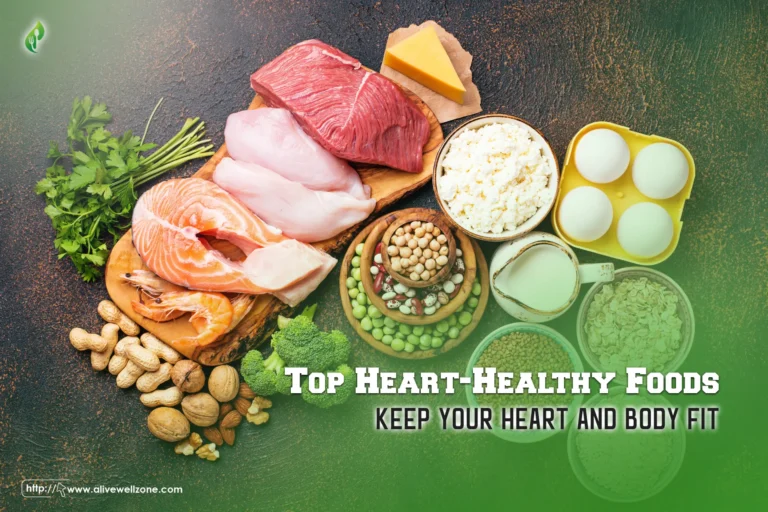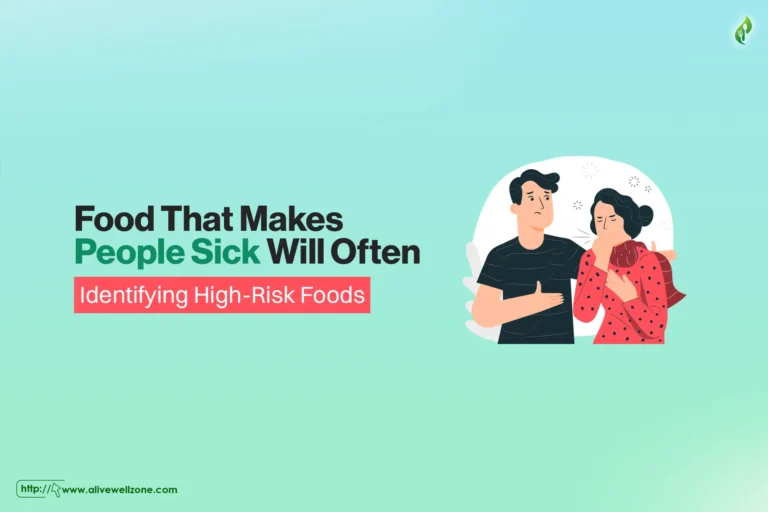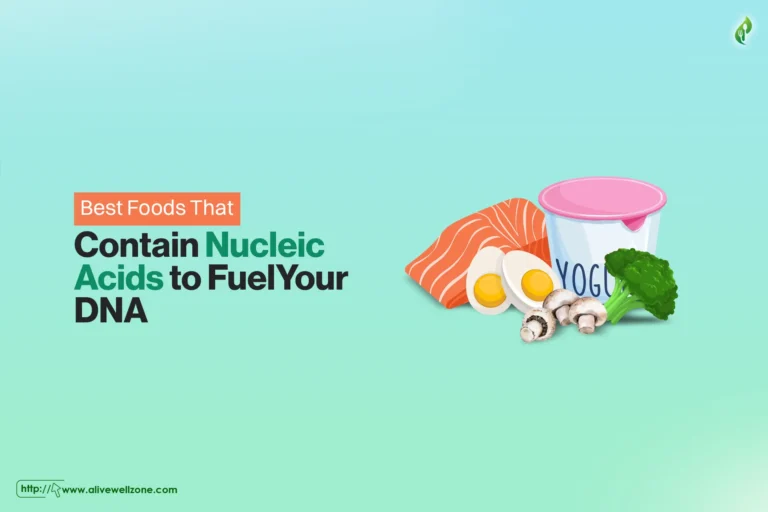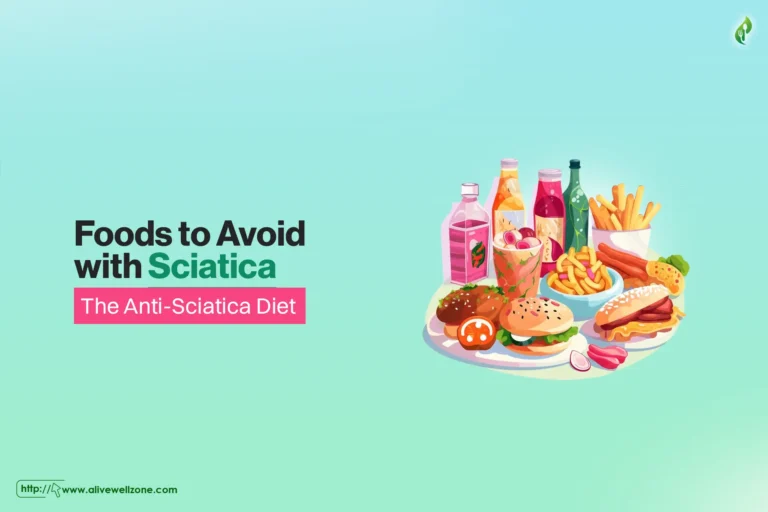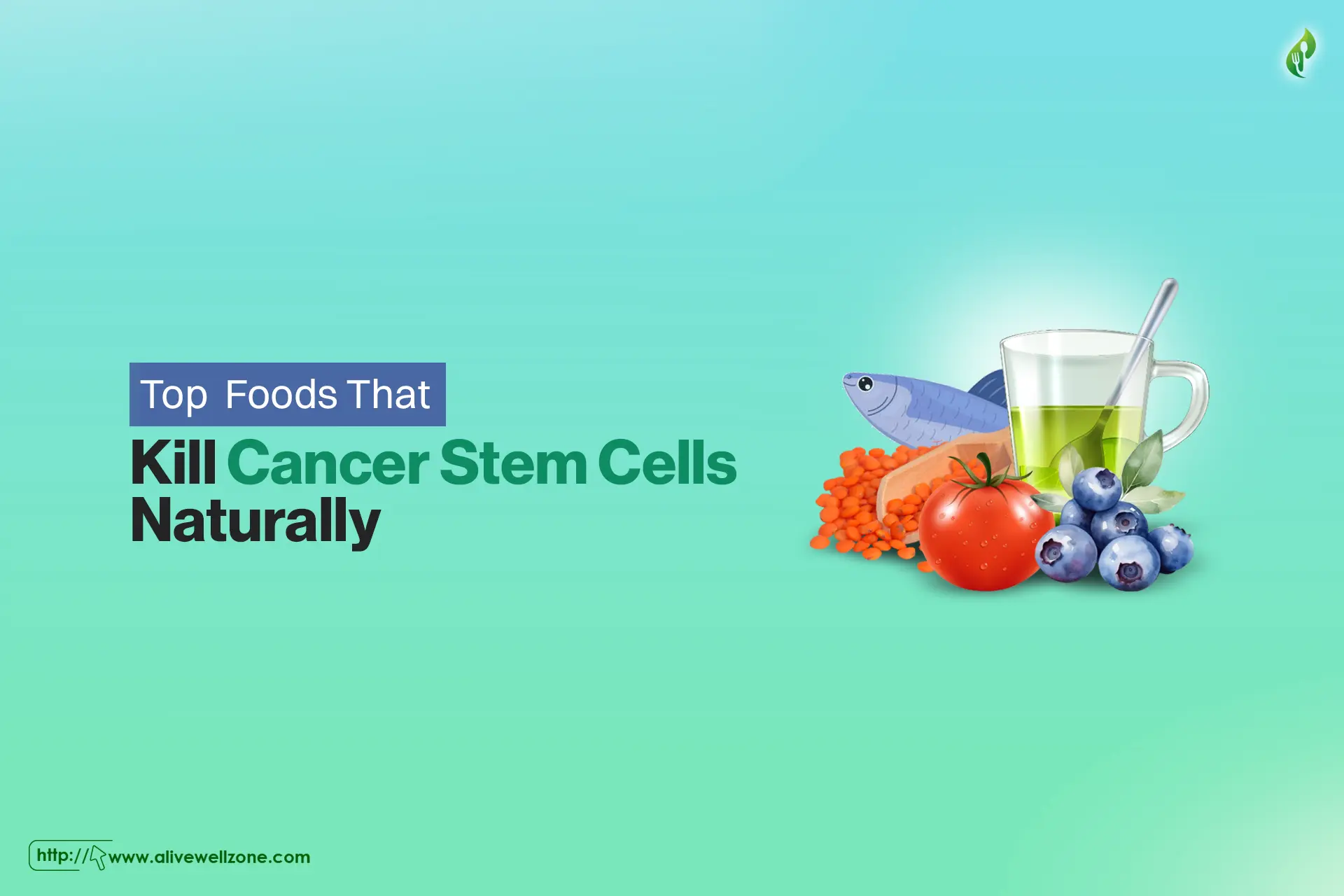
Last Updated on December 5, 2024 by Helena Akter
Are you worried about cancer? Do you want to increase your body’s natural defenses against this disease? While conventional treatments exist, exploring natural alternatives is equally important. That’s where the 10 foods that kill cancer stem cells come in.
These foods are walnuts, apples, green tea, fatty fish, purple potatoes, cruciferous vegetables, whole grains, legumes, carrots, and blueberries. Plus, avoid processed meats, red meat, alcohol, sugary foods, and ultra-processed foods to lower cancer risk.
In addition, we’ll explore the science behind these foods. Also, you’ll get to know about other foods that contain bioactive compounds to kill cancer stem cells. So, keep reading!
Key Takeaways
- Cancer Cell Killing Foods: Foods like walnuts, apples, green tea, and fish with lots of oil have antioxidants and nutrients. They can slow down cancer and help kill cancer cells. Also, they can help reduce inflammation.
- Other Foods: Some foods can attack the start of cancer. Soybeans, celery, and grapes have bioactive compounds that can help stop cancer from starting.
- To Avoid Foods and Drinks: You should eat less or stop eating things like processed meats, red meat, alcohol, sugary stuff, and foods made mostly in factories. These foods are linked to a higher cancer risk.
11 Cancer Cell Killing Foods for Optimal Health
Certain foods have powerful properties that can help fight cancer cells and support overall health. So, you should include them in your diet to boost your immune system and natural defense.

1. Walnuts
Walnuts are tasty nuts you can eat plain, roasted, or as a topping. They have good things for your body called nutrients. These nutrients are chlorogenic acid, gallic acid, and ellagic acid.
Scientists in South Korea found that these nutrients can help fight colon cancer. They tested the walnut extract on cancer cells and saw that it made the cells grow slower. After two days, the cancer cells grew 34% less. After six days, they grew 86% less.
People who ate walnuts had a much lower chance of dying from colon cancer. They were also less likely to get cancer again. Eating walnuts might help people with colon cancer live longer and feel better.
2. Apples
You’ve probably heard the saying, “An apple a day keeps the doctor away.” It might be true! Apples have special plant chemicals called polyphenols. These help your body fight inflammation, heart problems, and infections.
Some scientists think polyphenols might stop cancer from starting. They might change things in the body that can lead to cancer.
A study from 2018 found a special polyphenol in apples called phloretin. It can stop breast cancer cells from growing without hurting healthy ones. This polyphenol suppresses something called GLUT2 protein, which helps cancer cells grow.
3. Green Tea and Matcha Tea
Green tea has many benefits, including the ability to fight cancer cells. Scientists in China found that a special part of green tea called EGCG can slow down the growth of colon cancer cells by half.

Not only that, but EGCG can make cancer cells kill themselves. Another study found that matcha green tea, a type of powdered green tea, can stop breast cancer cells from getting energy. This causes the cancer cells to die.
These findings may explain why drinking green tea can help protect people from colon and other types of cancer.
4. Fatty Fish
Fatty fish like sardines, salmon, and mackerel aren’t just delicious—they’re also rich in omega-3 fatty acids, especially DHA and EPA. These vital fats help reduce inflammation.
It’s a key factor in lowering your risk of cancer. In fact, by keeping inflammation in check, omega-3s may prevent the conditions that allow tumors to grow.
Research has found that eating fatty fish is linked to lower cancer mortality. Moreover, omega-3s may slow down tumor growth, trigger cell death, and prevent new blood vessels from forming.
Including fatty fish in your diet is a simple and effective way to boost your overall health and wellbeing. Plus, it may help protect you from cancer.
5. Purple Potatoes
Purple potatoes come from Peru. Long ago, the Inca people thought they were good for health. Their purple color comes from a special thing called anthocyanin. You can also find this in many dark berries.
Scientists at Penn State University wanted to see if purple potatoes could help fight cancer. They gave mice with cancer one purple potato every day for a week. The mice who ate the potatoes grew 50% fewer tumors.
Even when the scientists looked closer, they found that the potatoes helped kill cancer cells. They also made the cancer cells less harmful.
Surprisingly, the good parts of the purple potatoes stayed the same no matter how they were cooked. It’s different from regular white potatoes. So, purple potatoes might be special in the fight against cancer stem cells.
6. Cruciferous Vegetables
Cauliflower, broccoli, and kale are some good vegetables. They have lots of healthy things in them, like vitamin C, K, and manganese. But they’re special because they have a thing called sulforaphane. It helps fight the stem cells of cancer.
Besides, a study indicates that sulforaphane can slow down and even kill cancer cells in the colon. Other studies show that sulforaphane can work with genistein, a thing found in soybeans, to stop breast cancer tumors from growing bigger.
Sulforaphane can also stop a thing called histone deacetylase. This thing helps cancer grow.
Plus, according to a review, eating broccoli, cauliflower, and other similar vegetables about 3 to 5 times a week might help stop cancer.
7. Whole Grains
Eating whole grains might help protect you from getting cancer. Studies show that people who eat whole grains have a 6 to 12% lower chance of getting certain types of cancer, like colon, stomach, and pancreas cancer.

Whole grains are different from refined grains. Refined grains might increase your risk of some cancers, but whole grains seem to help protect you. Whole grains include oats, brown rice, and whole wheat bread.
Adding them to your meals is an easy way to improve your health and lower your cancer risk.
8. Legumes
Foods like peas, beans, and lentils are called legumes. They have a lot of fiber, which might help prevent certain types of cancer. Studies show that people who eat plenty of bean fiber are less likely to get breast cancer.
Eating more legumes is a simple way to get more fiber and help protect yourself from cancer.
9. Carrots
A study looked at how many carrots 55,756 people ate and how this linked to different types of cancer.
The study found that people who ate raw carrots might be less likely to get colon cancer by about 17%. Eating raw carrots could also help protect against cancer of the pancreas, lungs, and blood.
Another study in 2022 also found that eating a normal amount of carrots might help prevent colon cancer.
10. Blueberries
Blueberries have things called antioxidants that can help protect your body from damage. Its damage can lead to cancer.
One study found that women with cervical cancer who ate blueberry extract while getting radiation treatment had much fewer cancer cells. It was better than using radiation alone.
Blueberries can also help fight cancer by weakening cancer cells and stopping new cancer cells from growing. Also, Blueberries are good for you because they have vitamins C and K, and they help you feel full.
11. Tomatoes
The main compound, lycopene, found in tomatoes, is an antioxidant that has been proven to lower the risk of several types of cancer. It’s especially effective in slowing the growth of cancer stem cells, particularly in prostate cancer.
Other Foods That Target Cancer Stem Cells
Some foods have a special chemical called bioactive compounds. These compounds can attack and weaken cancer stem cells. It helps fight cancer and keeps you healthy overall.
Here are some helpful compounds and the foods they’re found in —
- Genistein: Found in soy products, genistein can kill prostate cancer cells.
- Luteolin: Celery, oregano, and thyme have luteolin. It’s really good at stopping prostate cancer cells from growing.
- Quercetin: Peppers, apples, and capers contain quercetin. It works well with EGCG (from green tea) to fight prostate cancer cells.
- Chlorogenic Acid: Carrots, coffee, and fruits like apricots and plums have chlorogenic acid. It helps new tissue grow and stops tumors from getting blood. It also harms lung cancer cells.
- Resveratrol: Red wine, grapes, nuts like pistachios, and peanuts, dark chocolate, and cranberries have resveratrol. It can slow down breast cancer cell growth by a lot.
- Ellagic Acid: Blackberries, chestnuts, walnuts, and pomegranates have ellagic acid. It’s good at attacking breast cancer cells.
Eating these foods might help fight cancer by targeting the main problem: cancer stem cells.
Foods and Drinks That Linked to Cancer You Should Avoid
Some foods and drinks are linked to an increased risk of cancer. To protect your health, you must know which ones to limit or avoid in your daily diet.

1. Processed Meats
Those meats that have been changed to make them last longer or taste different. Things like lunch meat, ham, hot dogs, bacon, and sausage are processed meats.
These meats often have nitrates and nitrites in them. They can make you more likely to get cancer in your bowel or stomach. It might seem hard to eat less processed meat, but you can start small.
For example, when buying lunch meat, try to find ones without nitrites and nitrates, or pick ones with less fat and salt.
2. Red Meats
Red meat, pork, like beef, and lamb, can raise your chances of getting colorectal cancer. But you don’t have to stop eating it completely. Just try to eat less of it and not as often.

Meanwhile, eating lots of plants is good for you. So, aim to fill about ⅔ of your meals with vegetables, beans, whole grains, and fruits. The other third can be lean meat, like fish or chicken, and dairy.
You should eat less than 18 ounces of red meat each week. That’s about the size of 6 cards or 2 softballs.
Remember, how you cook red meat matters. Grilling can do harmful things. It’s better to bake or use low heat methods. When you do eat red meat, pick leaner cuts, trim the fat, or soak it in a marinade before cooking.
You can also try other proteins like fish, chicken, or plant-based foods.
3. Alcohol
People argue about whether alcohol is good or bad for you. But doctors who study cancer say it can cause cancer in your colon, stomach, throat, pancreas, liver, and breast.
Alcohol can hurt your body over time and change your cells’ DNA, which can lead to cancer. It’s best not to drink alcohol at all, but we know that’s hard for some people.
So, if you do drink alcohol, only have one drink a day if you’re a woman, or two if you’re a man.
4. Sugar and Artificial Sweeteners
Foods and drinks with added sugar or fake sweeteners might be linked to cancer. These sugary products can make you gain weight and get fat, which can lead to cancer.
We don’t know for sure if fake sweeteners cause cancer, but it’s best to use them less. Treat them like sugar – don’t have too much.
5. Ultra-Processed Foods
Many foods you buy ready-to-eat are called ultra-processed including pizza, chicken nuggets, instant noodles, etc.
These foods often have lots of sugar and salt. In fact, eating them heavily can make you gain weight, which can lead to cancer. Well, that’s how unhealthy foods affect your body.
Plus, these foods don’t have much nutritional value for your body. To help prevent cancer, try to eat less of them. Eat smaller amounts, or choose other foods instead.
It’s hard to stop eating them completely, but eating less can make a big difference.
6. Refined Carbohydrates
Refined carbs like white bread, pastries, sugary cereals, and white pasta have a high glycemic index. It can lead to sharp rises in your blood sugar.
And high blood sugar and insulin levels are associated with a higher risk of some cancers, like colorectal, breast, and endometrial cancers. So, you should avoid these foods or eat moderately.
[1] 7. High-Salt Foods
High salt intake has been linked to stomach cancer. It’s particularly true in populations with high consumption of salty and pickled foods. Sees, salt can damage the stomach lining. As a result, it leads to inflammation and increasing the risk of cancer.
Final Words
We explored 10 delicious foods packed with powerful nutrients. These foods can fight cancer stem cells and support your overall health.
Look, no can’t say that if you include these foods in your diet, you’ll be immune to cancer. However, we can ensure that it can be a significant step towards a healthier you.
Remember, a balanced diet rich in fruits, vegetables, whole grains, and legumes is key. Besides, the future of cancer prevention is bright, with ongoing research continuously unveiling new possibilities.
FAQs of Foods That Kill Cancer Stem Cells
What triggers cancer cells to grow?
Cancer cells grow when gene mutations disrupt normal cell instructions. It causes uncontrolled growth or prevents cell death. Unlike healthy cells, cancer cells don’t follow the usual rules. So, they lead to continuous and unchecked growth that can form tumors and spread throughout the body.
Why fasting kills cancer cells?
Fasting kills cancer cells because it forces them to release oxidative phosphorylation through aerobic glycolysis. Plus, it increases reactive oxygen species (ROS), activates p53, causes DNA damage, and leads to cell death. It’s especially when combined with chemotherapy.
What does cancer diarrhea look like?
Cancer diarrhea can vary in appearance. If the cancer affects the left side of the colon or rectum, you might see fresh, red blood in your stool. If it’s higher up in the colon, stools may appear black and tarry due to altered blood as it passes through the digestive tract.


